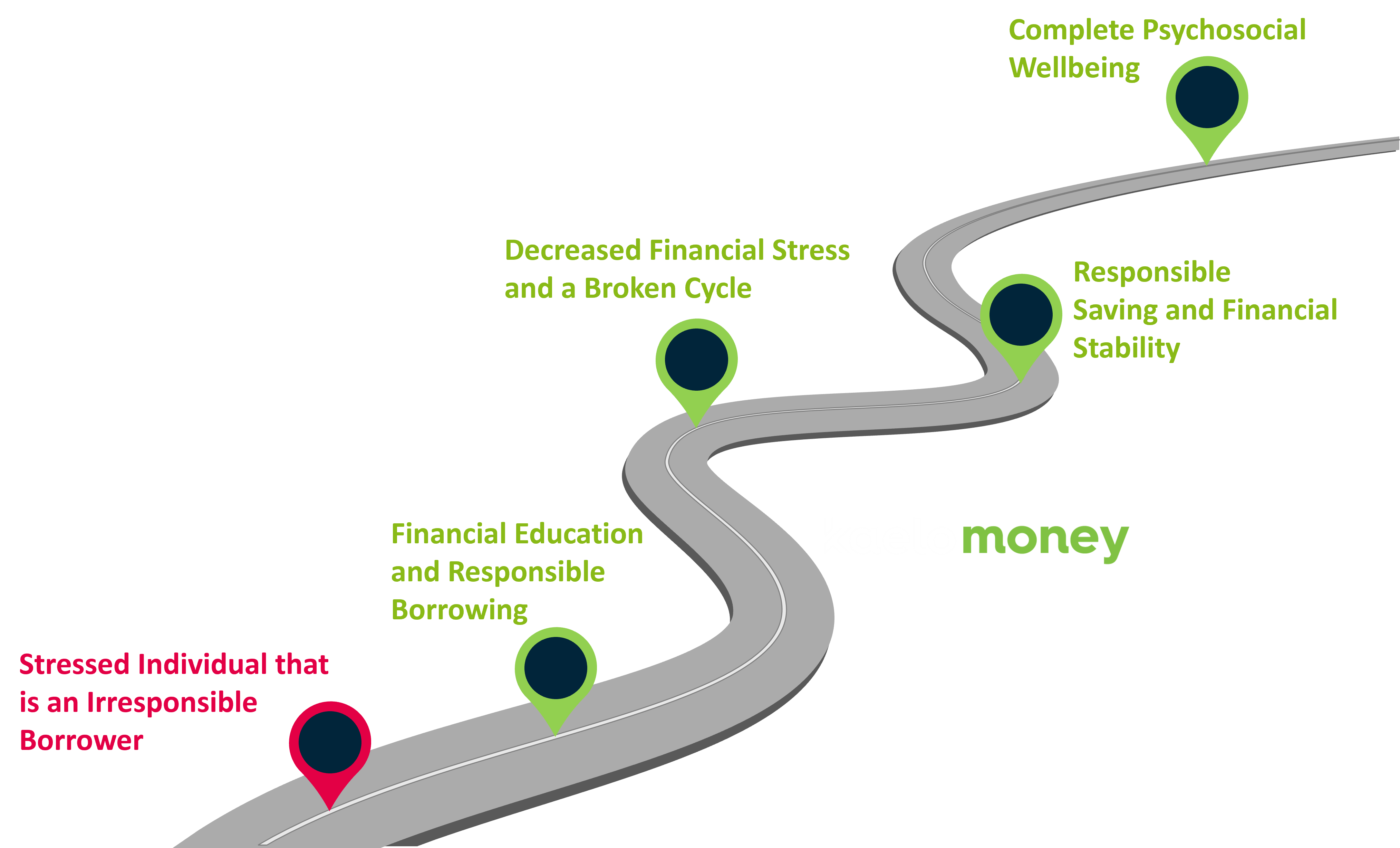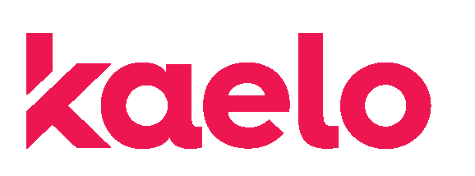
A number of economic studies have exhibited a cyclical link between financial stress and mental health problems
Financial difficulties lead to mental health problems, associated with these are increased levels of absenteeism, presenteeism and staff turnover. As a result, this leads to employees experiencing difficulties to earn and manage money effectively, leading to more financial stress and the cycle then perpetuates.
Economic factors beyond employees’ control, such as the COVID-19 pandemic, the Russian-Ukrainian conflict, and other associated inflationary and employment pressures, have contributed to the decline in disposable income. Speaking to the graphics, we’ve seen that there’s been a 31% decline in disposable income, meaning that employees have a decreased ability to save.
The access to regulated credit has decreased over the last seven years where we’ve seen rejection rates increasing from 53% in 2015 to 62% in 2022. People are now left with little to no choice but to resort to unregulated loans, like loan shark, charging unscrupulous fees.
We seen through studies conducted by FNB that middle income earners are spending 80% of their salaries within 5 days of payday which means that for the rest of the month they have to live off 20% of their salary, which is unsustainable.
This financial stress spiral is turning responsible spenders, due to factors out of their control, into irresponsible borrowers; This just results in greater debt for the individual.

The first step in the financial Wellness journey is recognising and acknowledging that within your or your clients’ organisations that there are employees struggling with financial debt. A large proportion of employees are borrowing money from regulated unsecured lenders, with fees between 30% and 40%, and in the worst cases, loan sharks, who charge between 80% and 100%.
What’s become very apparent is that there needs to be a solution in the market whereby employees can access money that is affordable and that is ethical whilst following a journey of financial education and financial wellness.
This is where Kaelo Money comes in as an enhancement to the Kaelo lifestyle product. In terms of the journey, you will begin with an individual who is an irresponsible borrower due to factors out of their control. To accomplish complete financial wellness, you need to educate the individual and provide them with a facility through which they can borrow responsibly.
Once this occurs, employees will understand the importance of budgeting, saving and how using loan sharks is the worst thing they can do. The stress cycle will start breaking as employees experience less of the downstream effects and have an increased ability to earn and manage their money effectively. Consequently, they will follow a positive spiral towards decreased levels of financial stress.
As they utilise the Kaelo Money platform, they learn how to become responsible savers and achieve financial stability to the extent that they understand their finances. They no longer have to use loan sharks, or even use the emergency wallet within Kaelo Money when it is not necessary.
* “31% decrease in disposable income in the last six years” according to DebtBusters Debt Index Q12022
* “Rejection rates have increased from 53% to 62% since 2015” extracted from “Decline in short-term credit is weighing down SA economy, research finds” by Lameez Omarjee
* “South Africa’s average middle-income earners spend up to 80% of their salary within five days of payday” according to data from First National Bank


